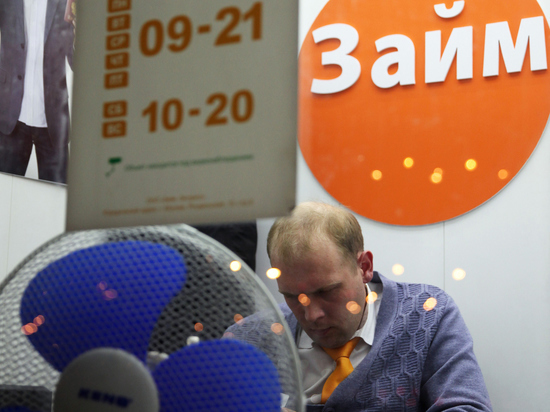Named two main reasons for the September surge in loan defaults
[ad_1]

This is an acceleration of the fall in income and partial mobilization
September was marked by a powerful surge in loan defaults. And we are talking about the growth of debts with early (up to 30 days) delay, which occurred in the segment of car loans, credit cards and loans for the purchase of goods. The situation is reminiscent of the one observed in March, but today it is more related to the structural negative in the economy itself, rather than to such external and “one-time” factors as partial mobilization.
The number of auto loan agreements in arrears in September increased by 18.7% compared to August (36.9 thousand). This is the largest increase in the number of problem contracts at an early stage since the beginning of the crisis. During the period from February to September, 94.9 thousand contracts for the purchase of goods on credit (POS) became overdue, which is 21.5% more than in August. The rates were higher this year only in February (+33.1%) and in May (+50.5%). A sharp surge in non-payments also affected the credit card segment: in September, the Russians made a delay on 878.8 thousand cards (+9.5% compared to August) in the amount of 4.2 billion rubles, according to the Scoring Bureau (formerly Equifax).
As for the total amount of overdue debt of individual clients on loans, then, according to the Central Bank, as of October 1, it amounted to 1.07 trillion rubles. In September, the indicator increased by 1.9%, in August – by 2.1% (the maximum level since the beginning of the year). The state of affairs with mortgage payments is also unimportant: in August, citizens missed them by 783.7 billion rubles (+57.9% compared to July), which is comparable to the peak values in February.
The situation is due to a combination of circumstances. One of the obvious ones is partial mobilization and its consequences: after September 21, part of the male population left the country and, since not all those who left managed to continue working remotely, their families lost one of their sources of income. In addition, it is technically more difficult to repay loans from abroad. But the point is not so much in this, but in the accelerated decline in real disposable incomes of the population in the third quarter: in annual terms, they fell by 3.4% against minus 0.8% a quarter earlier. Rosstat also recorded an increase in the share of expenses for paying mandatory payments and various kinds of contributions – to 15.4% (in July-August) from 14.8%.
“It is still difficult to say how long-term the trend will be the growth of delinquency on bank loans, – says private investor Fyodor Sidorov. – On the one hand, the effect of partial mobilization had an effect: people who left Russia faced purely technical obstacles in making the necessary monthly payments. Lost the opportunity to fulfill their loan obligations and those who were called up for military service: now this task fell on the shoulders of relatives. But in general, the solvency of Russians will fall. People are massively switching to a crisis model of consumption, reducing spending. According to the results of October, for the first time, an increase in unemployment was recorded in the Russian Federation, and due to the stagnation of the economy, this process will accelerate.”
Rather, it is a general increase in uncertainty and all sorts of shocks. The economy is in a storm, as they say, argues Igor Nikolaev, chief researcher at the Institute of Economics of the Russian Academy of Sciences. Incomes are falling, necessary expenses are growing, many have invested in vacations last summer, and little is left of the savings. Some categories of workers who have been kept idle by employers in recent months have realized that they will soon be permanently fired. Rising loan defaults put pressure on the banking system, MFIs and retail chains. This leads to the fact that loans become more expensive, and it becomes more and more difficult to get them.
“Two factors overlapped: a sharp acceleration in the fall in real disposable income in the third quarter to 3.4% and partial mobilization, due to which some citizens were cut off from their loans, – says Alexey Fedorov, TeleTrade analyst. – So far, this “splash” of deterioration in credit discipline concerns only the early stages of payments. Therefore, it can be stopped to some extent by solving the organizational and financial problems of the mobilized. Otherwise, by the end of 2022, we will see a noticeable deterioration in the quality of the loan portfolios of Russian banks.”
Moreover, summarizes Fedorov, that today banks are deprived of access to half of the gold and foreign exchange reserves, and a recession is brewing in the world economy, which will be comparable in scale to the crisis of 2008-2009. Then the domestic banking sector was saved only thanks to government injections of tens of billions of dollars.
[ad_2]
Source link






